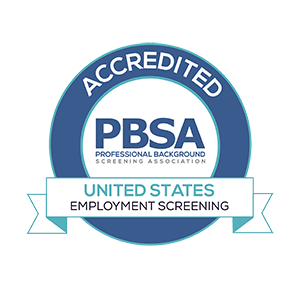The Fair Credit Reporting Act (FCRA) was originally passed in 1970 to amend and enlarge the sway of the Federal Deposit Insurance Act. The purpose of the act is to regulate the behavior of the consumer reporting agencies (CRAs) and background checks. If businesses use credit reports or background checks improperly or the CRAs provide information improperly, that is a violation of Federal law which can be contested in civil court. The act regulates the reporting agencies on behalf of those whose reputations are damaged by incomplete or inaccurate credit reporting or background checks. It also regulates false background check and reference checking.
While information provided might vary between companies and states, you can expect to gather the following information during the verification process:
- Start date and end date. The employer should confirm with you the exact date the candidate started and ended his employment with the company.
- Job titles. Positions held are a frequent source of embellishment on candidates’ resumes. Thus, employers should confirm all job titles held by the candidate when he was employed by the company.
- Job responsibilities. Verifications typically confirm the job duties the candidate was responsible for during his tenure at the organization.
- Salary. Many employment verifications also consist of a confirmation of the candidate’s previous salary.
- Rehire eligibility. Perhaps the most important part of the verification process is to confirm whether or not the candidate is eligible for rehire. In some states, if the candidate is not eligible for rehire, the reason for termination is also confirmed.
Are employment verifications really necessary?
Many employers are tempted to skip over the employment verification process if a candidate has an outstanding interview. This is not advisable for a variety of reasons. For example, candidates who have gaps in their employment history have been known to adjust start or end dates of previous positions in order to cover that gap. Additionally, some candidates may embellish their former job titles or responsibilities in an attempt to leverage more money from a potential employer. Simply put: countless candidates falsify information, so it’s important to do your due diligence and conduct effective employment verifications.
To learn how we can help your company with the employment verification process, contact us today.


Leave a Reply
Want to join the discussion?Feel free to contribute!